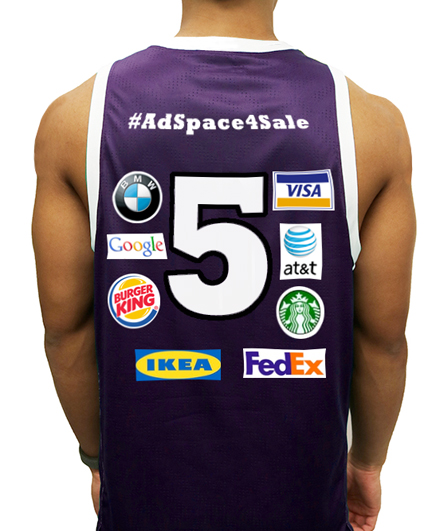 I am a sports fan. If you are too, you know one of the many
things impacted by the coronavirus is sporting activities. That’s why I was
excited when three sporting events happened this past weekend: the Indianapolis
500, the NBA playoffs and Major League Baseball games. From a marketing
perspective, major sports have always generated sponsorship opportunities
galore. Naming rights of stadiums are sold as awareness marketing methods. So
are signs on the walls, official product sponsorships, halftime shootouts,
pregame interviews, first pitches, fan giveaways… literally every moment of a
sporting event is a marketing opportunity.
I am a sports fan. If you are too, you know one of the many
things impacted by the coronavirus is sporting activities. That’s why I was
excited when three sporting events happened this past weekend: the Indianapolis
500, the NBA playoffs and Major League Baseball games. From a marketing
perspective, major sports have always generated sponsorship opportunities
galore. Naming rights of stadiums are sold as awareness marketing methods. So
are signs on the walls, official product sponsorships, halftime shootouts,
pregame interviews, first pitches, fan giveaways… literally every moment of a
sporting event is a marketing opportunity.
That leads me to an interesting marketing situation that is
at the forefront of major sports leagues, which is jersey sponsorships. Since
their inception, the major team sports in the USA (football, basketball,
baseball and hockey) have sold sponsorships in their stadiums but have not
allowed any advertising on their uniforms or other player equipment, unless you
were the manufacturer of that equipment. That began to change in 2017 when the
NBA allowed a team sponsorship patch on basketball uniforms. Since then, other
major sports have discussed the idea and are leaning towards jersey
sponsorships. (Major League Baseball announced a sleeve sponsorship initiative
this past summer in part, to be able to recoup losses teams are facing due to
playing without fans in attendance.)
The jersey sponsorship has been a team-by-team business
decision up to this point. However, individual players have seen that they have
an opportunity to cash in on sponsorships too. Many athletes become
spokespeople for corporate brands. Why not allow each individual to sign their
own deals and display whatever brands they endorse – player by player? This is,
in essence, what auto racing does. One driver has a set of sponsors, which are
advertised all over his uniform, while another driver has a totally separate
set of sponsors. The NBA is inching closer to this reality when they allowed
players to list whatever word or phrase they desired on the back of their
jersey this season. While most of those were in support of a social cause, they
are on the precipice of leaving the backs of jerseys open to the best deal the
player can get from a commercial bidder. Sporting purists fear that these
jerseys will become less and less uniform (i.e. the same within a team) and
become nothing but a patchwork of logos.
One of the marketing directives we often give to customers
is this: don’t water down your marketing opportunities. What do I mean by that?
Any time you pay for a sponsorship, you should strive to get the most out of
the recognition of your brand that it affords you. If you have to share the
spotlight with dozens of other brands, you are watering down the sponsorship.
Your logo simply becomes a wallpaper pattern with a whole host of other brands.
When you can own the sponsorship or be the title sponsor, with more visibility
than the other sponsors, this is best for your brand.
If you are considering a sponsorship, be it a sport or some
other sponsorship, ask these questions:
- How much exclusivity will I get with the
sponsorship? If you are one of many sponsors, do you get your moment alone in
the spotlight at any point in the sponsorship?
- How many people will be exposed to my brand?
- How engaged will they be with my brand when my
spotlight moment comes? If everyone is heading to the concession stand when
your brand takes center stage, unless you are selling popcorn or hot dogs, your
brand will be ignored. On the other hand, if you are the title sponsor for a
car giveaway if someone hits a half-court shot in a basketball game, you will
have an engaged audience.
- What does my target market think about the
venue? Some sponsorships are to expose new people to your brand, but many are
in support of your existing customers – whatever is important to them is worthy
of a sponsorship.
This is not just a sports marketing thing. It applies to any kind of sponsorship marketing you do to raise awareness of your brand. To get the most of your sponsorships, make sure you are not
diluting your effectiveness by watering down your brand. Be as exclusive as you
can afford in a venue that relates to your target market.